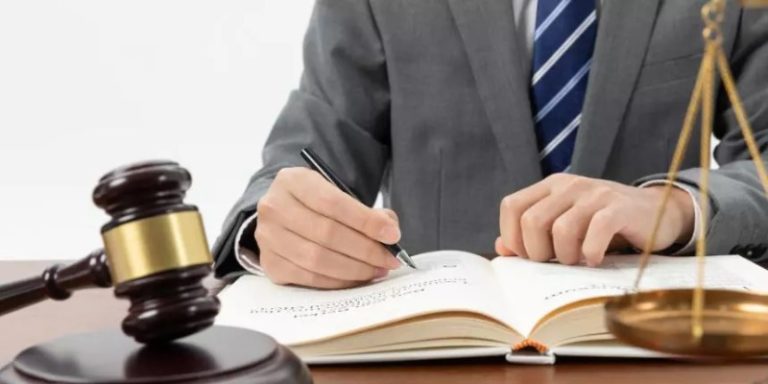Introduction
Driving Under the Influence (DUI) is a serious offense with potentially life-altering consequences. Understanding the DUI court process is crucial for anyone facing these charges. This guide will walk you through every step of the DUI court process, from arrest to post-trial proceedings, providing insights into legal definitions, penalties, and what to expect in court.
The DUI Arrest
Initial Contact with Law Enforcement
The journey through the DUI court process begins with your encounter with law enforcement. When pulled over, officers typically look for signs of impairment such as erratic driving or slurred speech.
Traffic Stop Procedures
During a traffic stop, the officer will approach your vehicle and request your driver’s license, registration, and insurance. They may ask you to step out of the car for further evaluation.
Field Sobriety Tests
Field sobriety tests are designed to assess your coordination and balance. Common tests include the walk-and-turn test and the one-leg stand test. Failing these tests can lead to an arrest.
Breathalyzer and Blood Tests
If the officer suspects you are under the influence, they may ask you to take a breathalyzer test or a blood test. These tests measure your blood alcohol concentration (BAC) and determine if you exceed the legal limit.
Arrest Procedures
Arrest Rights
Upon arrest, you have certain rights, including the right to remain silent and the right to an attorney. It’s essential to exercise these rights to protect your interests.
Booking Process
After arrest, you will be booked at the police station. This involves recording your personal information, taking your photograph, and fingerprinting you.
Post-Arrest Protocols
Bail and Bond Options
After booking, you may be given the option to post bail or bond to secure your release until your court date. The amount varies depending on the severity of the charge and your criminal history.
Temporary License Suspension
Your driver’s license may be temporarily suspended following a DUI arrest. This suspension can vary based on whether you refuse testing or have a high BAC.
Understanding DUI Charges
Legal Definition of DUI
DUI stands for Driving Under the Influence. Legally, it refers to operating a vehicle while impaired by alcohol or drugs, including prescription and illegal substances.
Types of DUI Charges
Misdemeanor DUI
A misdemeanor DUI is typically a first-time offense or involves minor aggravating factors. Penalties may include fines, probation, and mandatory DUI education.
Felony DUI
A felony DUI charge is more serious and usually involves aggravating factors such as repeat offenses, causing injury or death, or having a very high BAC. Felony convictions carry harsher penalties, including longer jail time and heavier fines.
Potential Penalties
Fines
Fines for DUI offenses can range from hundreds to thousands of dollars, depending on the severity of the offense and your criminal record.
Jail Time
Jail time for a DUI can vary widely. First-time offenders might face a short jail sentence or probation, while repeat offenders or those involved in serious incidents can face extended incarceration.
Probation
Probation may be part of a DUI sentence and involves regular check-ins with a probation officer, drug testing, and compliance with specific conditions set by the court.
Pre-Trial Procedures
Arraignment
Purpose and Process
The arraignment is your first court appearance where you are formally charged and asked to enter a plea. This step is crucial as it sets the stage for the rest of your case.
Entering a Plea
At the arraignment, you can plead guilty, not guilty, or no contest. Your plea choice will significantly impact how your case proceeds.
Pre-Trial Motions
Motion to Suppress Evidence
A motion to suppress evidence seeks to exclude certain evidence from being used in your trial. This might be based on arguments that evidence was obtained illegally or improperly.
Motion to Dismiss
A motion to dismiss argues that the case should be thrown out due to insufficient evidence or procedural errors.
Discovery
Evidence Exchange
Discovery involves exchanging evidence between the prosecution and defense. This process ensures both sides have access to the information needed for trial preparation.
Witness Lists
Both sides will provide lists of witnesses they plan to call during the trial. This helps each side prepare for the testimony and cross-examination of witnesses.
DUI Court Process: Trial Phase
Jury Selection
Voir Dire Process
Jury selection, or voir dire, is the process of choosing a jury from a pool of potential jurors. This involves questioning potential jurors to ensure they can impartially decide the case.
Challenges for Cause
Challenges for cause are objections to specific jurors who may be biased or unable to serve fairly. These challenges can affect who ultimately serves on the jury.
Opening Statements
Both the prosecution and defense will give opening statements, outlining their cases and what they intend to prove. These statements set the stage for the evidence and arguments to follow.
Prosecution Case
Presenting Evidence
The prosecution presents evidence to prove the defendant’s guilt. This includes testimony, documents, and physical evidence related to the DUI charge.
Witness Testimony
Witnesses, including law enforcement officers and experts, provide testimony supporting the prosecution’s case.
Defense Case
Presenting Evidence
The defense presents evidence to challenge the prosecution’s case or to introduce evidence that may exonerate the defendant.
Witness Testimony
The defense may call witnesses to provide testimony that supports their case or undermines the prosecution’s evidence.
Closing Arguments
In closing arguments, both sides summarize their cases and argue why the evidence supports their position. This is the last opportunity to persuade the jury before they deliberate.
Jury Instructions
The judge provides the jury with instructions on the legal standards they must use to decide the case. These instructions guide the jury in their deliberations.
Verdict
The jury deliberates and returns a verdict of guilty or not guilty. If found guilty, the court will proceed to sentencing.
Post-Trial Proceedings
Sentencing
Types of Sentences
Sentences for a DUI conviction can include fines, jail time, probation, or a combination of these. The specific sentence depends on the severity of the offense and the defendant’s criminal history.
Factors Affecting Sentencing
Factors such as prior DUI convictions, the presence of aggravating factors, and the defendant’s attitude can influence the sentence.
Appeals Process
Grounds for Appeal
An appeal can be based on errors in the trial process, such as legal mistakes or issues with evidence. The appellate court reviews the case for any procedural or legal errors.
Filing an Appeal
Filing an appeal involves submitting a notice of appeal and presenting arguments to the appellate court. The process can be complex and often requires legal assistance.
Post-Conviction Relief
Expungement
Expungement is the process of removing a DUI conviction from your criminal record. Eligibility for expungement depends on various factors, including the nature of the offense and your criminal history.
Probation Violations
Violating probation conditions can lead to additional penalties or modifications of your probation terms. It’s essential to comply with all probation requirements to avoid further consequences.
DUI Court Process for Different Scenarios
First-Time Offenders
Typical Outcomes
First-time offenders often face less severe penalties, such as shorter jail sentences or reduced fines. Diversion programs may also be available.
Diversion Programs
Diversion programs offer an alternative to traditional sentencing, such as counseling or community service. Successful completion of a diversion program may result in a dismissal or reduction of charges.
Repeat Offenders
Enhanced Penalties
Repeat DUI offenders face more severe penalties, including longer jail sentences and higher fines. The court may also impose additional conditions, such as mandatory treatment programs.
Habitual Offender Status
Habitual offender status applies to those with multiple DUI convictions. This status can lead to even harsher penalties and increased scrutiny from the court.
Underage DUI
Specific Legal Considerations
Underage DUI cases involve unique legal considerations, such as zero-tolerance laws and additional consequences for minors. These cases often result in stricter penalties and additional educational requirements.
Impact on Future
An underage DUI conviction can have long-lasting effects on a young person’s future, including educational and employment opportunities.
Legal Representation
Role of a DUI Attorney
A DUI attorney plays a crucial role in navigating the court process, providing legal advice, and representing you in court. They work to challenge the prosecution’s case and advocate for the best possible outcome.
Finding an Attorney
When searching for a DUI attorney, consider factors such as experience, reputation, and fees. Personal referrals and online reviews can help in making an informed choice.
Cost of Legal Representation
The cost of hiring a DUI attorney can vary widely based on factors such as the complexity of the case and the attorney’s experience. Some attorneys offer payment plans or fixed fees.
Pro Se Representation
Risks and Challenges
Representing yourself in a DUI case, known as pro se representation, can be challenging due to the complexity of legal procedures and rules. Lack of legal expertise can lead to unfavorable outcomes.
Public Defenders vs. Private Attorneys
Public defenders are court-appointed attorneys provided to defendants who cannot afford private representation. While they are skilled, private attorneys may offer more personalized attention and resources.
Impact of a DUI Conviction
Personal Consequences
Employment Impact
A DUI conviction can affect employment opportunities, particularly in professions requiring driving or security clearances. Employers may view a DUI conviction as a liability.
Family and Social Implications
A DUI conviction can strain family relationships and social connections. The stigma associated with DUI offenses can lead to social isolation and personal stress.
Financial Impact
Legal Fees
Legal fees for a DUI case can be substantial, covering attorney fees, court costs, and other expenses. The financial burden can be significant, especially if the case goes to trial.
Increased Insurance Rates
A DUI conviction can lead to increased insurance premiums. Insurance companies view DUI offenders as high-risk drivers, leading to higher rates.
Long-Term Effects
Criminal Record
A DUI conviction results in a permanent criminal record, which can impact various aspects of life, including employment, travel, and housing.
Travel Restrictions
A DUI conviction can lead to travel restrictions, particularly for international travel. Some countries have strict entry requirements for individuals with criminal records.
Preventive Measures and Education
Avoiding DUI Arrest
Designated Drivers
Using a designated driver is a simple and effective way to avoid DUI charges. Designated drivers ensure everyone gets home safely without risking legal trouble.
Ride-Sharing Services
Ride-sharing services like Uber and Lyft provide convenient alternatives to driving under the influence. These services offer a safe and reliable way to get home.
DUI Education Programs
Impact on Court Sentencing
Participating in DUI education programs can positively impact your court sentencing. Courts often view these programs as a sign of rehabilitation and willingness to address alcohol-related issues.
Community Resources
Various community resources offer DUI education and support, including local organizations and online programs. These resources can provide valuable information and assistance.
Expert Insights and Advice
Advice from DUI Attorneys
DUI attorneys provide valuable advice on navigating the court process, including preparing for trial, understanding legal rights, and exploring defense strategies.
Law Enforcement Perspectives
Law enforcement officers can offer insights into the procedures and protocols involved in DUI arrests. Their perspectives can help understand the law enforcement side of the process.
Testimonials from DUI Defendants
Hearing from individuals who have been through the DUI court process can provide real-life insights into the challenges and outcomes of a DUI case.
Conclusion
Understanding the DUI court process is essential for anyone facing these charges. From arrest to post-trial proceedings, being informed can help you navigate the complexities of the legal system. If you or someone you know is dealing with a DUI charge, seeking legal counsel and taking proactive steps can significantly impact the outcome. Stay informed, make smart choices, and seek professional help to ensure the best possible resolution.










